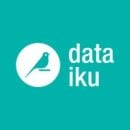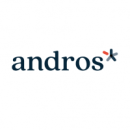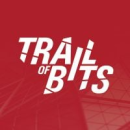The history of piracy features scads of famous captains. From Edward “Blackbeard” Teach to Anne Bonny, these fabled figures from the Golden Age of Piracy were the scourges of the sea. Perhaps the most successful of these pirates was Bartholomew “Black Bart” Roberts.
The former second mate of the Princess of London, Roberts was forcibly conscripted into the service of Howell Davis upon his ship’s capture in 1720. And after Davis was killed by Portuguese authorities, Roberts quickly rose to the rank of captain.
The secret to his success? Roberts owed his good fortune, in many respects, to being a people-first pirate.
After a mutineer absconded with two of his ships, Roberts introduced a code of conduct — outlining expectations for crew members as well as perks and benefits they would enjoy. Those perks included “a vote in the affairs of moment” and “equal title to the fresh provisions, or strong liquors, at any time seized.” Roberts and his crew would go on to sail from West Africa to the Americas, capturing as many as 400 ships during his four-year tenure as Black Bart.
As captain, Roberts knew that his success or failure was contingent on the work and well-being of his crew. And while tech companies are inclined to more constructive pursuits than Roberts, benefits like company equity, transparency throughout an organization and opportunities for advancement are as important to the success of today’s less-than-piratical companies as they were in Roberts’ day.
Built In NYC sat down with leaders from five tech companies to find out how they are prioritizing their people and keeping their crews onboard.

Dataiku is a platform for “Everyday AI.” From fraud detection to customer churn prevention, more than 500 companies use Dataiku to systemize their use of data, analytics and AI.
What steps has Dataiku taken to foster a people-first culture?
One of our top-level company goals is to ensure “Dataiku is an unconventional company to work forever for.” We care deeply about our employees and are committed to ensuring that everyone feels that their work is rewarding and enjoyable. I lead the culture team, which is in charge of ensuring that our culture continues to flourish throughout the scaling process. For us, being a people-first company means leveraging the collective intelligence of our employees. We are constantly seeking ways to create opportunities for Dataikers to play an active role in creating “their” Dataiku.
This year’s company holiday season celebrations are a good illustration of this. We’ve been able to implement a variety of initiatives coming straight from Dataikers’ imagination. For example, we are offering a stipend to our remote employees who are unable to attend our traditional holiday events held at our main offices to encourage them to go out and enjoy a meal on us. We’re also supporting charitable initiatives sourced and championed by local employees — Daymaker in the U.S. and La Mie de Pain in France.
Dataikers have helped 65 nonprofits, including organizations that are advancing solutions for climate change, humanitarian issues and DEI.”
What perks, benefits or other offerings help support a people-first company culture?
Dataiku dedicates one percent of our revenues to supporting nonprofits through direct contributions and through employees volunteering some of their work time each year to engage with the nonprofit of their choice. To date, Dataikers have helped 65 nonprofits, including organizations that are advancing solutions for climate change, humanitarian issues and DEI. Dataiku was recently named to the Inc. 2022 Best in Business list in the software category for its work with nonprofits through its AI for Good program called Ikig.AI.
We have five employee resource groups at Dataiku. They create space for conversations, allow us to grow as a company and implement visible changes in the workplace. We also actively promote work-life balance by celebrating — and honoring — going offline. During the summer of 2021, we gave employees bonus days for taking more PTO to prevent burnout.
Additionally, we organize an annual company offsite in a different location around the world each year. This allows our teams to get together to collaborate, celebrate and learn from one another.
How do you gauge the effectiveness of these efforts and ensure employees feel valued and supported? And what are some ways you’ve adapted your strategy in response?
We always strive to do better when gathering employee feedback. We’re continuously working to adapt based on our employees’ feedback, which we gather from a variety of sources including NPS, 360 reviews and surveys targeting specific groups or topics.
We’re also leveraging an online platform to gather ideas from Dataikers with weekly customized questions like, “if you were the CEO of the company, what would you do differently?” We then use our own Dataiku software to analyze the data and generate insights. For example, we heard from employees that they wanted greater clarity on career paths and for their managers to have conversations with them on how they could expand their careers at Dataiku. As a response, the people team is currently working on implementing a global framework.
We also constantly improve our management training program. On top of our manager onboarding and managerial training, we offer executive coaching with a six-month program to help them put into action the knowledge they acquire.
 CertifyOS
CertifyOS
CertifyOS delivers API-first credentialing, licensing and enrollment to payors, health systems and digital health companies.
What steps has CertifyOS taken to foster a people-first culture?
CertifyOS has put people development and culture at the top of its priority list. When I arrived at CertifyOS, our leadership team had already defined our values and implemented them into regular conversations. We define and instill a management style in our leaders that is humble, ready to learn, ready to teach, respectful and empathetic.
Our CEO, Anshul leads with compassion and puts people first. He’s always telling me, “I want anyone who comes to CertifyOS to leave as a more knowledgeable person.”
There’s a reason why CertifyOS employees continually refer others to join our teams.”
What perks, benefits or other offerings help support a people-first company culture?
We are a fully remote company yet sustain high energy in our daily working lives. Perks like unlimited vacation with a minimum of two weeks to be taken per year; great medical, dental and vision benefits with 100 percent of health, dental and vision insurance premiums covered; employee resource groups, work-from-home stipends and our popular quarterly trivia games are all benefits dedicated to cultivating a people-first culture.
How do you gauge the effectiveness of these efforts and ensure employees feel valued and supported? And what are some ways you’ve adapted your strategy in response?
The people operations team encourages regular feedback and facilitates environments where people feel comfortable sharing with honesty. Our leaders actively listen, engage and drive change quickly where appropriate, rather than relying on traditionally structured performance review cycles, which can be too delayed.
We also build user-friendly tools to gather relevant feedback, such as surveys and well-structured one-on-one meetings. Based on company survey results, we realized employees were looking for more personalized hardware at home. This led us to create a work-from-home stipend for all employees, so they could make buying decisions for themselves that better suited their specific needs.
Being a fully-remote workforce, we can offer much more work flexibility, which means working hours can be more accommodating for each individual based on location and personal situations.

AlphaSights connects investment and business leaders with a network of globally-distributed industry professionals and their unique perspectives.
What steps has AlphaSights taken to foster a people-first culture?
I’m a believer in “micro-moments,” which are essentially distinct experiences that either build upon or degrade your perception of a person or institution. Over the years, I have had countless micro-moments that have reinforced my belief in our company and its values.
About six months into my tenure at AlphaSights, I was informed that my boss was moving internally, and I was being placed on an entirely new team with a new manager and book of business. This was a fairly daunting change, but I was amazed when my new manager came up to me immediately afterward and said, “Kelly, I’m so thrilled that you’re joining our team. I know it’s a big change, but I’m confident we can navigate it together. I would love to grab lunch tomorrow and learn more about you, your career ambitions and how we can best work together.” That small act of kindness meant the world to me and set the foundation for what would become an incredibly impactful five year direct-reporting relationship.
I have felt the firm’s investment in my own growth and success since the day I walked through the door.”
What perks, benefits or other offerings help support a people-first company culture?
One of the most important ways that you can support your employees is by investing in their growth and development. One of my favorite parts about working at AlphaSights is that there is no room for complacency. You’re constantly pushing yourself to learn, grow and become the best working version of yourself. We foster a culture of high expectations and high support.
Our culture has presented me with exceptional opportunities throughout my tenure, allowing me to unlock account and people responsibilities early on in my career. I was able to continuously level up as a professional by leveraging company-sponsored career coaching, a mentorship program with the Global Head of our Private Equity business, monthly lunches with our COO and more. The accessibility and support of our senior leadership team is truly unmatched. I have felt the firm’s investment in my own growth and success since the day I walked through the door.
How do you gauge the effectiveness of these efforts and ensure employees feel valued and supported? And what are some ways you’ve adapted your strategy in response?
In order for employees to feel valued and supported, there needs to be a high level of trust. We are a feedback-heavy culture, which I have found lends itself well to a trusting environment. My direct reports know that they can always come to me with the good, the bad and the ugly; and I know that I can do the same with my boss. When you trust that the people you’re working with are truly invested in your happiness and success, you inevitably feel valued and supported.
Healthtech company andros uses data and software to build technology designed to make it easier for healthcare networks to expand and simplify credentialing and compliance.
What steps has andros taken to foster a people-first culture?
While making a huge shift to a remote-first company that went from spanning two states to now more than 30, we have made it a priority to put our people first in a variety of ways. Those ways include work-life balance, culture-building activities and making sure we are intentional about our diversity, equity, inclusion and belonging efforts.
Transparency and trust have been crucial in our approach to making employees feel seen and heard at every level.”
We meet weekly as an entire company to share updates on our people, product and processes while also giving anyone a chance to directly ask our CEO and other executives questions. My favorite part of this weekly virtual meeting is wrapping up with shout-outs. I love hearing employees recognize their teammates for their efforts and celebrating them together as a team! As our CEO says, “It’s important to find joy in and outside of work.” We certainly make time to have fun while allowing employees to be open and honest with where they are at in life and work. Transparency and trust have been crucial in our approach to making employees feel seen and heard at every level.
What perks, benefits or other offerings help support a people-first company culture?
At andros, our motto is #oneteam. To us, this means we show up for each other and support each other in finding joy in and out of work. We use #oneteam as a guiding light in our efforts to support our people as well.
We offer a number of other perks and benefits to support our people, such as excellent healthcare benefit options with multiple options to suit employee and family needs; monthly wellness reimbursement benefit to allow our employees to pursue any type of wellness goal; unlimited paid time off and summer Fridays; and 16 weeks of paid leave for birthing parents and six weeks of paid leave for the secondary parent.
We also offer stock options and 401(k) matching; a generous annual learning and development stipend and access to LinkedIn Learning; and an on-demand mental health support platform and an employee assistance program to support our employees navigating any of life’s challenges.
How do you gauge the effectiveness of these efforts and ensure employees feel valued and supported? And what are some ways you’ve adapted your strategy in response?
We have a very open and honest culture at andros. We make space for employees to share feedback in many ways, whether that’s to the people team or sharing an idea directly with our CEO in one of our weekly meetings. When we take action based on feedback, we build trust and people feel more comfortable sharing, knowing that we will listen.
We are currently working to revamp our weekly meeting format based on employee feedback. We’re excited to iterate and improve on a great communication tool that is part of our culture's DNA. We also implemented a no-meeting block every Wednesday morning to ensure that part of the day is dedicated to #gettingafterit based on employee feedback.
Combining high-end security research with a real-world attacker mentality, Trail of Bits is a cybersecurity company that helps secure some of the world’s most targeted organizations and products.
What steps has Trail of Bits taken to foster a people-first culture?
At Trail of Bits, investing in our employees is essential to our success. We provide ongoing training and professional development opportunities to help our team members learn new skills and advance their careers. We provide professional coaching, access to leadership classes and an allowance for individual learning and development courses. Since cybersecurity is constantly evolving, we encourage all of our employees to attend conferences and internal workshops that showcase different skills and create a culture of continuous learning.
We believe that by investing in our employees, we are not only supporting their growth but strengthening our entire company. It’s vital to have a supportive learning environment that fosters creativity, innovation and collaboration.
What perks, benefits or other offerings help support a people-first company culture?
Our company offers a comprehensive range of benefits that help our employees stay happy and healthy. We provide high-quality health, vision and dental insurance plans that are 100 percent covered from the first day of employment. We also provide supplemental access to wellness programs, including primary care, mental healthcare, fitness and fertility care. We offer a 401(k) retirement plan with a five percent match from the first day of employment. We also want to invest in the communities and causes that matter to our employees, so we match employees’ charitable donations and provide a carbon offset.
We believe keeping constant open dialogue is the best way for us to improve our employees’ careers and well-being.”
We have also been a remote workforce since our inception, giving employees the flexibility to live their lives beyond their time spent working. With all of our offerings, we aim to create a positive and supportive work environment that encourages them to thrive in their careers and the communities where they spend their time.
How do you gauge the effectiveness of these efforts and ensure employees feel valued and supported? And what are some ways you’ve adapted your strategy in response?
We conduct surveys at different stages of the employee lifecycle to gather feedback about their experiences with our programs. We also track metrics for training programs, such as the application of skills and perceived effectiveness. In fact, we’ve recently switched gears for our coaching program because we weren’t seeing results that were in line with our metrics of success.
We also regularly solicit feedback from all of our employees; we believe keeping constant open dialogue is the best way for us to improve our employees’ careers and well-being.














